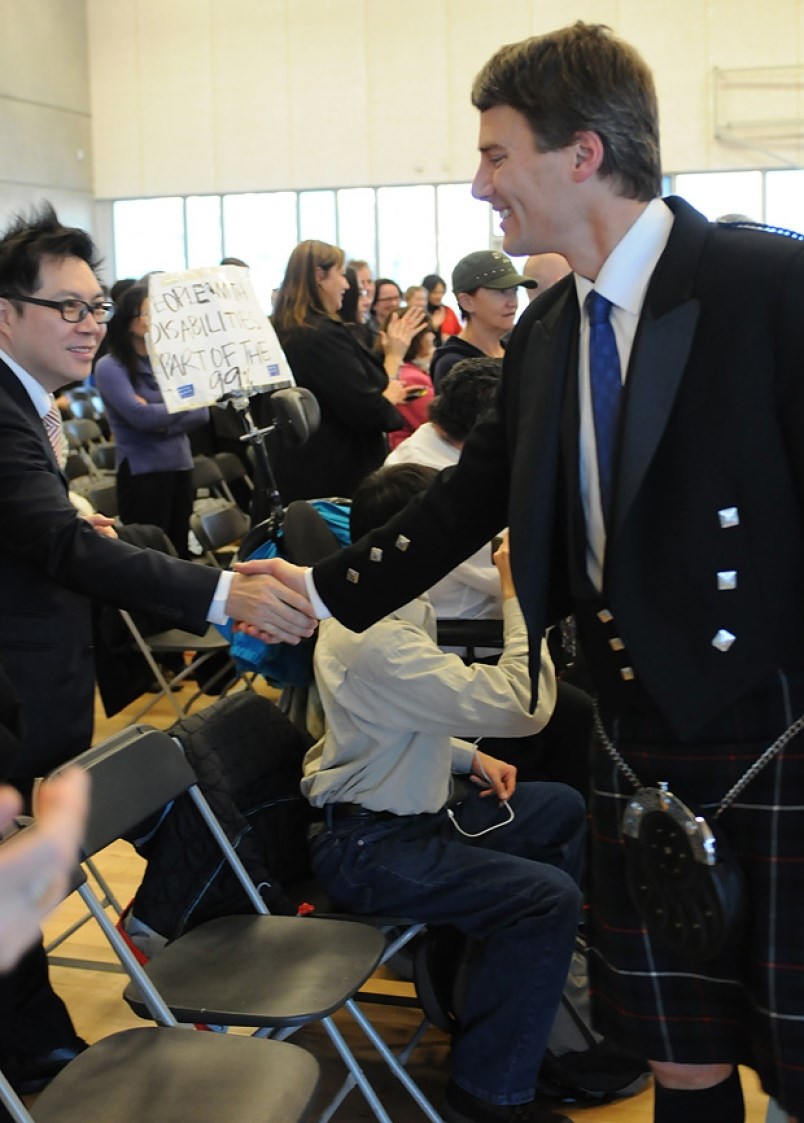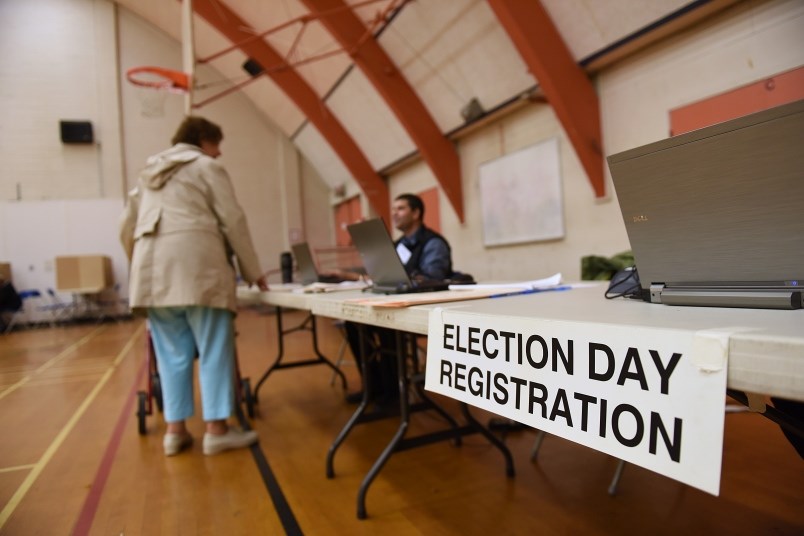A task force that examined how to better engage Vancouver voters has recommended a sweeping set of changes for the 2018 civic election that include city council agreeing to stop accepting donations from corporations, unions and non-profits.
The recommendation was among five outlined by the Independent Election Task Force and presented to council Tuesday by Shoni Field, the task force’s chairperson.
“Participating in the decision-making process after receiving contributions creates a perception of bias or conflict of interest that undermines public confidence in the electoral system,” Field told council of the task force’s examination of how political parties are financed in Vancouver.
With the provincial government unwilling to ban union and corporate donations from civic campaigns, the task force recommended council amend its Code of Conduct policy, which serves as guide for the mayor and councillors on how to conduct the business of the city.
Such an amendment, which doesn’t require a change to the Charter, would translate to elected officials withdrawing from decisions involving corporations, unions, non-profit societies and associations that contribute directly or indirectly to campaigns.
“The intent here is to not create a climate of constant withdrawals from votes, but instead to incentivize parties and candidates to adopt gift acceptance policies that prohibit these campaign contributions,” said Field, recognizing what such an amendment could mean under the current rules. “So, yes, we could imagine a circumstance where you’d all accepted a donation from a corporation or a union, and you’d all have to recuse yourself from a vote -- and where would that leave the city? However, that would only happen if you had all consciously chosen not to honour the intent of this proposed change to the Code of Conduct.”
Field said the task force’s work on campaign finance reform was focused on the “perception of conflict” between election officials and contributors to campaigns. She emphasized the examination did not reveal any violation of current law or policy, although the report pointed out politicians make decisions on proposed developments backed by campaign donors.
The Courier has published several stories over the past decade revealing how donors have also taken councillors on dinner cruises, opened up private boxes at Rogers Arena for concerts and hockey games and provided free tickets to such pricey events as Cirque du Soleil.

All parties at one time or another have called for the provincial government to amend Vancouver’s Charter and implement a ban on corporate and union donations and put a cap on the value of donations given by individuals.
The ruling Vision Vancouver party and its main Opposition party, the NPA, spent a combined $5.8 million in the 2014 election campaign. The Green Party, which has a policy not to accept donations from corporations, spent $112,215, according to finance documents filed with Elections B.C.
Green Party Coun. Adriane Carr described the task force’s recommendation to amend the Code of Conduct as “the most exciting in the report” because council can implement it without changes to the Charter.
“It’s an absolutely fantastic idea,” Carr told the Courier. “I think it would do more to change the nature of decision-making and allay public fears of that there may be grounds for accusations of corruption, which is the idea that is circulating out there.”
Vision Coun. Andrea Reimer said an amendment to the Code of Conduct reminded her of a motion Carr moved unsuccessfully in 2014 to have the mayor and councillors voluntarily adopt a set of guidelines to get the big money out of civic politics.
“What we were clearly told at the time was that it’s not a rule if you can’t enforce it, and my understanding of the public’s desire is not for more unenforceable murkiness but actual rules that they can act on if they feel that they’ve been broken,” said Reimer, who chided the provincial government for not honouring council’s repeated requests for campaign finance reform. “If you want to talk about politics, [amending the Code of Conduct] takes the political pressure off of the people who do need to act in order for there to be a law, which is the province.”
NPA Coun. George Affleck agreed with Reimer that such an amendment would be unenforceable, despite the task force’s conclusion there would be “political costs” if an elected official didn’t adhere to the new rules.
Affleck said he worried if some councillors didn’t follow the rules, and the result was council didn’t have quorum, then decisions could potentially be put into the hands of city staff.
“People elect us to govern the city, to make decisions for the people of the city – we represent the people,” he said. “Staff are meant to implement what we believe the people want. So it wouldn’t be democratic for staff to not only be managing the city, but potentially making all the decisions, too.”
Other recommendations in the task force’s report include adopting a proportional representation voting system, extending voter rights to permanent residents, conducting an online voting experiment and collecting data from previous elections to assist in strategies to increase voter turnout.
Council unanimously agreed to have city staff study the task force’s recommendations and deliver a report back before June on next steps in engaging more voters before, during and after elections.
Vancouver’s next civic election is Oct. 20, 2018.
@Howellings



